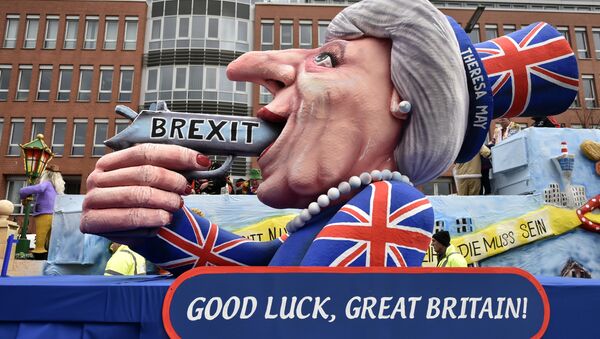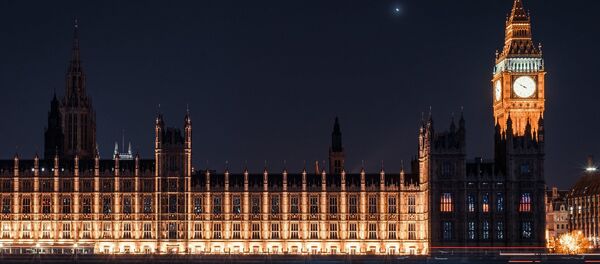Following the vote, Barnier also tweeted that there seemed to be “a dangerous illusion amongst British MPs that the UK can have a transition period even in case of no-deal Brexit”. Sputnik discussed the future of Brexit with Professor John Curtice, a professor of politics at the University of Strathclyde Glasgow, UK.
Sputnik: So can you talk about what yesterday's vote really means for the whole Brexit process and the UK?
John Curtice: Well the immediate consequence is that the UK government cannot present to Parliament the legislation that would be required in UK law to implement the revised version of the deal that was agreed between the UK government and European Union over the weekend. That in a sense, however, is probably the easy answer to your question, what happens thereafter is much more uncertain. It's what it's immediately done is it instigates two further debates in the UK Parliament because these debates were promised by the prime minister. The Parliament is going to get a chance to express its view as to whether or not the UK is willing to leave the European Union without any kind of deal at all and just crash out on the 29 March. It is widely expected that the Parliament will vote against that, although, there is more than one way that it could say that.
READ MORE: UK Govt to Propose Brexit Delay Until 30 June if Deal With EU Approved
So in truth, once we get to Thursday evening and beyond Thursday evening, there will be much uncertainty where we go from here. And indeed including whether or not the UK government will continue to cohere at this point. The movement that's coming out of the government at this point is very divided move. There’s some ministers who are saying that we should now be trying to structure and see if we can come to some accommodation with the opposition Labour Party, and to agree an alternative Brexit package. There are other ministers who are basically insistent that the UK should be able to leave without a deal if that is the position. So we are also not entirely sure if the government will be willing and able to execute whatever instructions that the Parliament attempts to give it.
Sputnik: What are your thoughts on the level of support for leaving without a deal? Which factions are actually in support of that kind of scenario?
John Curtice: I’d be surprised if the Parliament is concerned, the people who are in favor, essentially, what we tend to call the hard Brexiteers, so essentially it is members of the Democratic Unionist and the so-called European Research Group, that’s the more hard Brexit, and of the Conservative Party, they’re probably a minority within the Conservative Party and they're certainly a minority within the Parliament.
Sputnik: So what are the chances that we will actually see an extension of the withdrawal time? Obviously it’s really not clear what that would be used for, how much time the Article 50 would be extended for and what do you think are the main goals that need to be outlined prior to agreeing on this and understanding what period of time we're extending for?
John Curtice: There is no doubt that neither side wants the United Kingdom to crash out of the EU without a deal. Although there will be potentially substantial inconvenience to both parties, the inconvenience to both parties of extending the process it's probably going to be less of inconvenience than with the UK crashing out.
The crucial thing, however, bear in mind, at the end of the day if the UK and the European Union cannot agree on an extension to the Article 50 process, we now know as a result of the ruling of the European Court of Justice, the European Union's principal court, the United Kingdom does have the right between now and 29 March simply to say, 'We revoke our wish to leave', but that would be an extreme option. So the UK, at the end of the day, can stop no deal unilaterally if it wished to do so, but then it has to revoke its wish to leave.
READ MORE: Brits Stockpile on Toilet Paper, Painkillers Ahead of No-Deal 'Hard' Brexit
So I think the other thing is, the government will be required to request an extension. I mean at this point we have to roll back and certainly the prime minister at least, despite the fact that she lost very heavily again last night in the vote on her deal, we anticipate that probably she may have yet another go. In other words I think what she’s anticipating is if indeed Parliament does vote to say we aren't in favor of a no deal and then goes on vote, so we think we should need an extension, but at that point she might be able to persuade her hard Brexiteers, who are the group who above all ensured that she lost the vote yesterday, to come on board and basically say, 'Look, I told you, if you don’t vote for this deal there is a risk that the whole process will be extended and that you will maybe lose Brexit.’
The views and opinions expressed by the speaker in this article do not necessarily reflect those of Sputnik.





